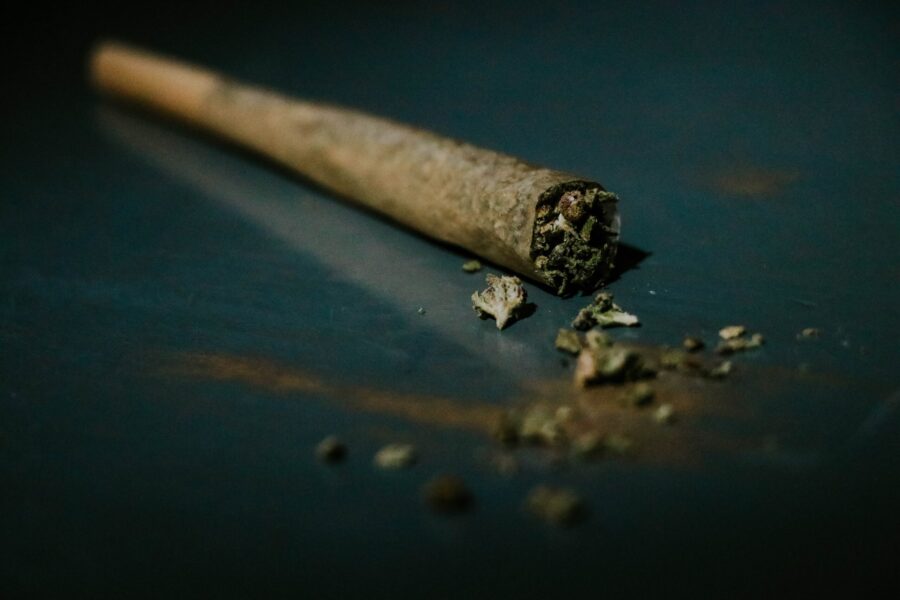New Drug Shows Promise for Cannabis Addiction
Just as alcohol is legal in America with age restrictions, cannabis is now legal in a majority of states. And just like alcohol can cause alcohol addiction, so can cannabis – at much higher rates than alcohol use. A new experimental drug shows promise in helping break that addiction, a small study recently showed.
Cannabis use disorder (CUD) is defined as the inability to stop using marijuana, even when it causes significant disruptions to daily life, negatively impacting relationships, school, or work. CUD affects over 16 million Americans, according to the National Institute on Drug Abuse, and there is currently no FDA-approved pharmacological treatment.
Cannabis and addiction
According to the Centers for Disease Control and Prevention, CUD is estimated to affect up to 30% of marijuana users. In contrast, a CDC study performed in conjunction with the Substance Abuse and Mental Health Services Administration found that only 3.5% of American adults who drink alcohol have alcohol use disorder – a rate that jumps to 10% among heavy drinkers. Alarmingly, the rate of addiction with cannabis is three times that of heavy drinkers and approximately 10 times that of those who ever consume alcohol.
Young users of marijuana are particularly at risk of addiction. NIH data show that “people who begin using marijuana before the age of 18 are four to seven times more likely to develop a marijuana use disorder than adults.”
In 2021, the National Institutes of Health reported that marijuana use reached record highs among young adults, and experts say cannabis use addiction is also on the rise, according to NBCNews.com.
In one bright spot of news, a small clinical trial published in Nature Medicine found that an experimental new pill is showing promise in treating cannabis use disorder.
The trial results
In a double-blind randomized controlled trial led by Columbia University researchers, a drug called AEF-0117 was found to reduce the perceived “good effects” of cannabis by up to 38 percent.
Meg Haney, the lead author of the study who also directs the cannabis research laboratory at Columbia University, described the preliminary findings on the medication as “very encouraging.” She set out to examine the question of whether the drug can “change the way it makes people feel, therefore, helping them to abstain from cannabis.”
In the study involving 29 adult men and women, roughly half were given AEF-0117 (in two doses, 0.06 milligrams and 1 miligram) while others were given a placebo at 9:00 in the morning. They then smoked a controlled amount of cannabis at 12:30 pm.
They were asked questions such as “I feel high” or “I feel a good effect” five times in a two-hour period after smoking marijuana. Participants who took the lower dose had a 19% decrease in perceived “good effects of cannabis, while those who took the higher dose had double that decrease, or 38% percent.
The higher dose also significantly reduced the amount of cannabis study subjects used later in the day. None of participants experienced significant side effects or withdrawal symptoms.
A large trial involving 300 participants is slated for next year.
How cannabis – and AEF-0117 – affect the brain
Cannabis contains the psychoactive compound tetrahydrocannabinol, or THC, which binds to a receptor in the brain.
AEF-0117 blocks certain aspects of the receptor, explains Dr. Scott Hadland, an addiction specialist at Boston’s Mass General Hospital for Children. “That way you’re able to block the euphoric effects of cannabis without causing these adverse side effects,” he noted.
Because it specifically blocks the euphoric effects of cannabis, the drug will work best on people who are motivated to quit using marijuana.
“We have to remember that this is a medication that, because it’s blocking the rewarding effects of cannabis, patients will have to actually want to take it,” he said. “We’ll need motivated patients who are looking to stop their cannabis use to take the medication in order for it to work.”
The dangers of high potency cannabis
Haney, the study’s lead author, worries that as more and more states legalize recreational many people are unaware of its potential harms, especially for young people: “I think the public is largely unaware of the risks to cannabis use, and it’s just talked about in very glowing terms.”
Hadland, who works with young people battling addiction, agreed that it can cause severe problems. Signs of cannabis use disorder in young people include:
- Academic struggles and falling grades
- Relational changes
- Abandoning activities that they used to love, like being part of a sports team or a school club
Addiction’s severe effects on young people’s lives makes finding a drug to help all the more urgent. “Our care has really been hampered by a lack of medications that are effective for treatment,” he said. “This is different from other substances like opioids, nicotine and alcohol, where we have effective medications.”
Another problem is the incredibly high potency of cannabis products on the market today. David Kroll, a toxicologist and co-director of the cannabis science and medicine education programs at the University of Colorado Skaggs School of Pharmacy (who was not involved in the study), noted that while the trial shows promise, the drug was tested on much lower dose cannabis – one third as strong – as most joints available in Colorado.
One reason cannabis has become so highly addictive is that it is so strong. “The products that are available now are just mind blowing,” Kroll said. “There’s no relation to the cannabis that your parents or grandparents might have smoked.”
Read the full article here.
Or read the study for yourself.
Syal, Akshay, M.D. “Experimental drug for marijuana addiction shows promise, small study finds.” NBCNews.com, 8 Jun 2023, https://www.nbcnews.com/health/mental-health/new-drug-marijuana-addiction-shows-promise-small-study-finds-rcna88258.
Photo by Elsa Olofsson on Unsplash



